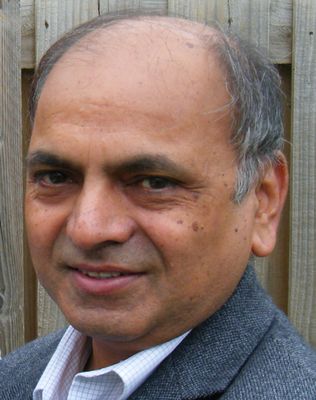 G.N. Devy
G.N. Devy
From the moment the counting of votes began in Gujarat, the media has been analysing what the elections reveal about voters in Gujarat and what it could mean for the 2019 Parliament elections. But, I would like to comment on the aspects of this election that do not feature in TV studios and excited public discussions.
The first is that the understanding of poverty, as depicted in the political discourse of both contending political parties, is not as they would like to believe. The BJP likes to believe that continuous economic development is the ultimate aspiration of every individual. The Congress believes that growth is a better idea, but with a supporting political arrangement for redistribution. The voting patterns show that neither has the BJP received uniform support in constituencies that are economically better off, nor has it been rejected in constituencies that are not so. It is the same with the Congress. Economy does not seem to have been the main factor.
Much has been said about the support drawn from Congress's alliance with the young leaders representing the PAAS, the dalits and the OBCs. Was caste the main factor in this election? Perhaps it was. A lot has also been discussed about the vicious communal turn that the BJP and the prime minister tried to give to the campaign. Was that the deciding factor? Perhaps it was. But, the fact is that the castes that appear to have taken away votes from the BJP and the religion that seems to have brought votes to it overlap. If one were to take the dalits, the OBCs and the Patels out of the Hindu voter-constituency, not much is left in it. Hence, while the two campaigns had evidently their specific orientations, there is still a missing piece in the analysis.
That missing piece is the voters themselves. All analyses have depicted voters as ‘respondents’ reacting to what the parties did or did not do. The election results make much more sense if this perspective is reversed. Election after election, Indian voters have proved the pollsters wrong because voters are seen as mere numbers or groups. No party is trained to look at voters as a vast number of individual thinkers who form a wide spectrum of 'critical consciousnesses'.
Whether in Uttar Pradesh, Bihar or Gujarat, voters are stereotyped. However, a closer look at the Gujarati society shows that it has developed a ‘critical consciousness’ that is quite unique and has an extremely nuanced grasp of the future. Their antennae are sharper, and their thinking far less parochial than in Tamil Nadu or Bengal. Gujarat is where the first ‘modern’ princely state, Baroda, had developed, where Gandhi emerged from, where the Navnirman movement of the 80s sprang up, and where even the right-wing model for development gained ground. It is a state with people who constantly keep looking at the future and shape it. Their decision to provide the Congress a greater space and rein in the fascistic regime of the BJP is a clear signal for the 2019 elections.
If read in this light, India needs to walk in step with other growing economies of the world, but not at the cost of the democratic principles. It is also a signal to the Congress that the country will not walk with it unless its vision of redistributive economy is fully spelt out. Thus far and no further, is what the critical consciousness of Gujarat has said. That, I think, is the greatest victory of Indian democracy as Gujarat understands it. People in India are asking the political parties to mend their ways. Gujarat has made a clear and calibrated statement of that message—a writing on the wall that the parties, pundits and pollsters need to decipher.
Devy has spent 35 years in Gujarat as an academic and social activist.




